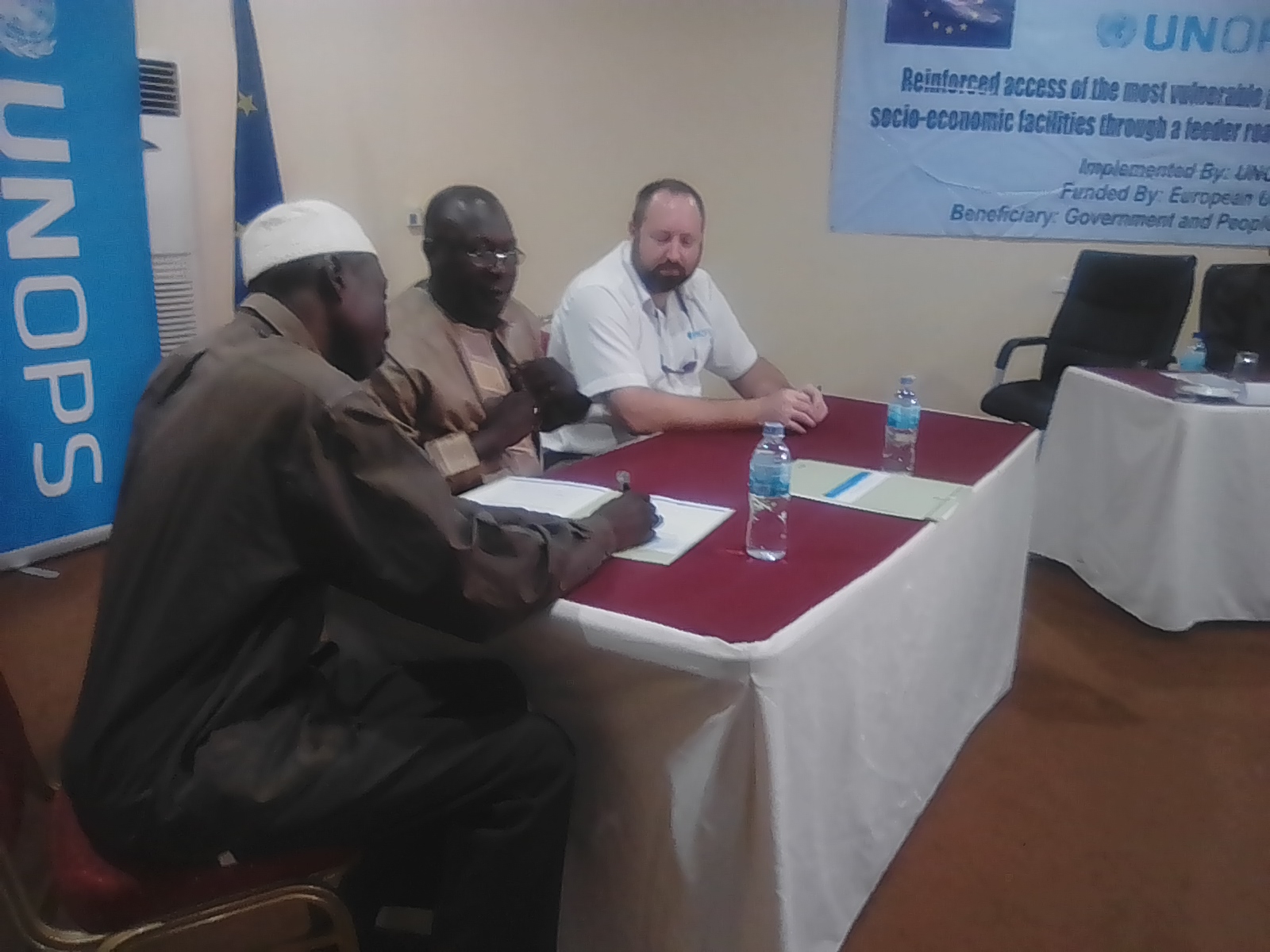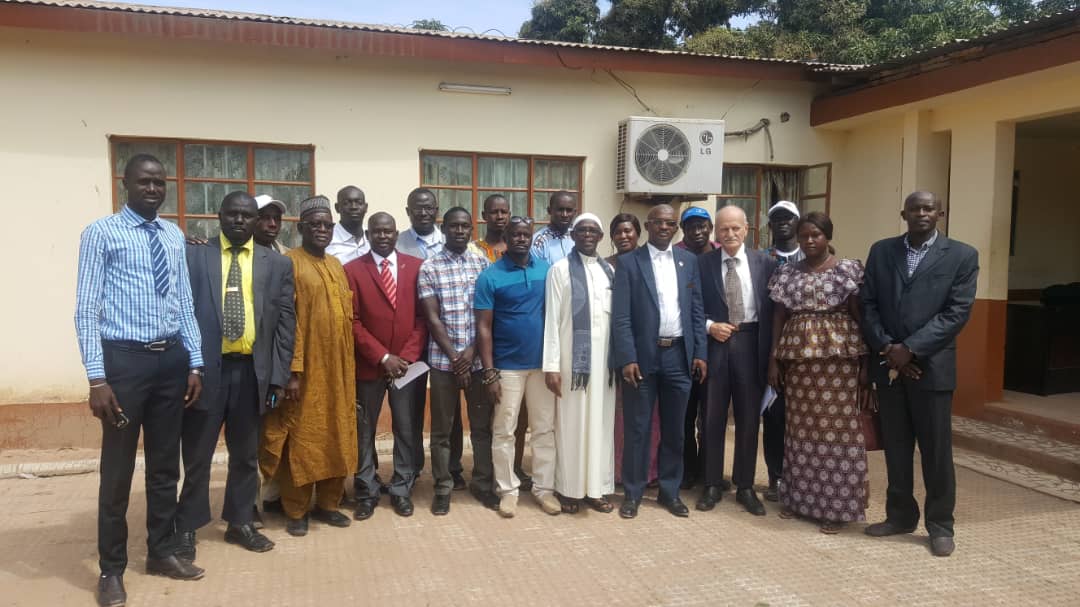By Sulayman Waan
The United Nation Office for Project Service (UNOPS) through a European Union funds signed a tune of 10.4 million Euros with major Roads Construction Companies of rural feeder road construction in the country.
It aims to cover a wide range of 104.4 km feeder roads in Central River, Upper River, and North Bank Regions, and to reinforce access to the vulnerable population, markets and socio- economic facilities within the regions.
The project was awarded to six major construction companies including, Chino JV. Foresight Engineering, Bouvis,O.Malack and Sons Enterprise JV and Dada Construction.
In his remarks, UNOPS Project Manager Nick Hodgson, said: “This project aims to attain the improvement of access to social amenities and markets in the targeted rural areas as well as improve road network management in the rural Gambia.”
He said the project will help in accomplishing the sustainable development goals of the Africa’s 2030 agenda to eradicating poverty, zero hunger, good health, quality education, decent work and economic growth, industrial innovation and infrastructural development.
He added: “UNOPS conducted market research to determine the suitability of hiring a potential local consultant and contractors to carry out the project.”
According to her, some of the feeder roads will be constructed under labour based technology, saying his labour based specialist had so far trained people from the local construction industry and representative from the three regions.
Representing the EU Ambassador Luca Palazzotto commended UNOPS for the implementation of the project, saying road access is significant in economic development for the rural communities.
“Without proper feeder road agricultural service, healthcare and schools will not be able deliver their services to rural communities,” he noted.
He praised Gambia government for its tremendous efforts in developing a framework development process as he cited the National Development Plan, saying that NPD is a clear manifestation to attaining the sustainable development goals the nation needs.
Malang Jammeh, deputy permanent secretary at the Ministry of Transport, Works and Infrastructure, said the project aligned with government’s commitment to easing transportation and eradicating poverty in the rural communities of the country.
The project as a framework characterized by vision 2020 to reduce poverty as well as to increase economic growth and employment, he said.
Mr. Jammeh added that EU has been the Gambia’s main donor in the transport sector over the years, adding the donor involved in the governance of the road sector exceeds 76.5 million Euros.
“The project came as a result of government request to EU in order to accelerate employment, noting a study was conducted in 2012- 2013 which eventually led to a short of feeder roads based on socio-economic indicators and budget availability,” he stated, adding it will help to improve road network in the rural Gambia





